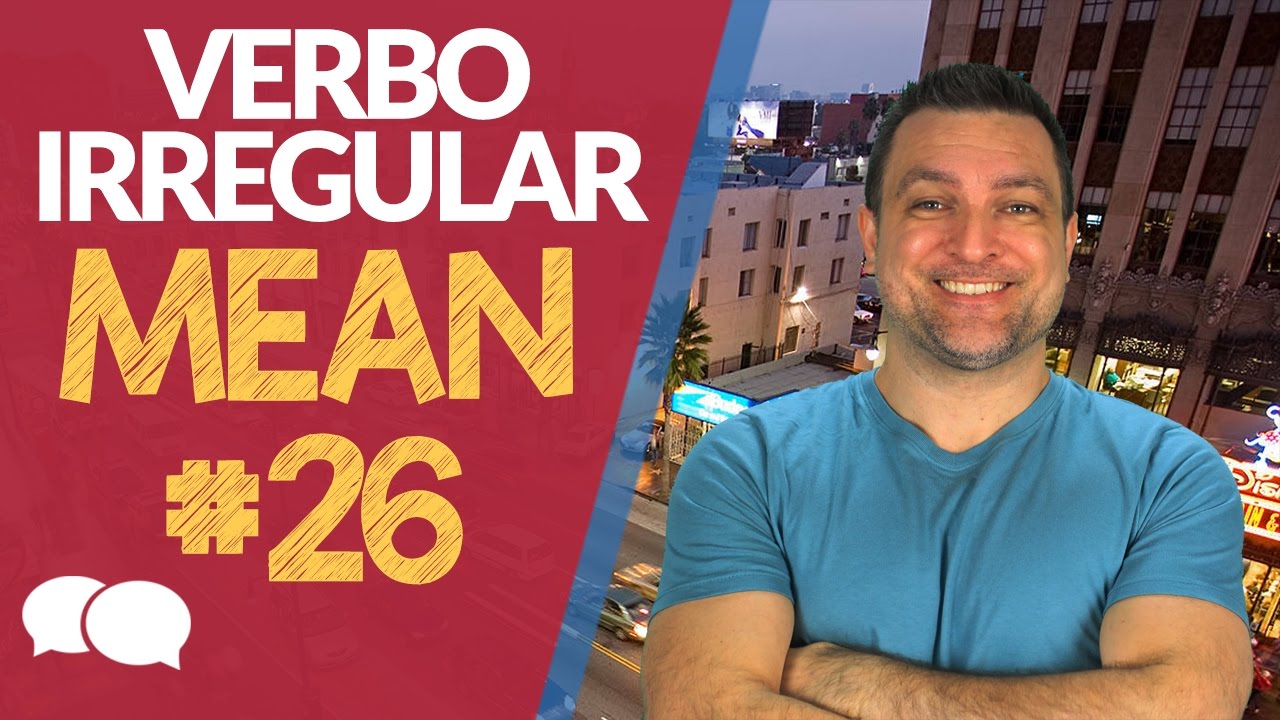Hello friends and welcome back to another post!
Desta vez veremos o verbo to mean na nossa sequência de verbos irregulares. Confira como conjugar e alguns exemplos de uso. So, let’s get started!
Verbo To Mean
Presente
Mean — Significar, querer dizer
Eating spaghetti doesn’t mean I love italian food. — Comer espaguete não significa que eu amo comida italiana.
Passado
Meant — Significou, significaram, quis dizer, quiseram dizer
She didn’t mean to say that. She meant to say you were beautiful. — Ela não quis dizer isso. Ela quis dizer que você é linda.
Particípio
Meant — Significado, querido dizer
It has meant a lot to me to have you here. — Tem significado muito para mim ter você aqui.
Amigos, ficamos por aqui hoje. Este foi o verbo to mean. Confira também o verbo to let. Até a próxima!
TRANSCRIÇÃO DO VÍDEO
(O texto a seguir é uma transcrição completa e sem edições do vídeo.)
Hi and welcome back to one more irregular verb of the day. The verb today is: mean. Que significar significar ou querer dizer alguma coisa. Past. Meant. Significou ou quis dizer alguma coisa. Participle. Meant. Significado ou querido dizer alguma coisa. Let’s take a look at some examples. Mean. Significar ou querer dizer alguma coisa. Eating spaghetti doesn’t mean I love italian food. Comer espaguete não significa que eu amo comida italiana. Past. Meant. Significou, quis dizer alguma coisa. She didn’t mean to say that. She meant to say you were beautiful. Ela não quis dizer isso. Ela quis dizer que você é linda. Participle. Meant. Querido dizer alguma coisa ou significado alguma coisa. It has meant a lot to me to have you here. Tem significado muito para mim ter você aqui. Reviewing. Present. Mean. Past. Meant. Participle. Meant. Mean. Meant. Meant. Thanks for watching and as usual I’ll see you next class.


